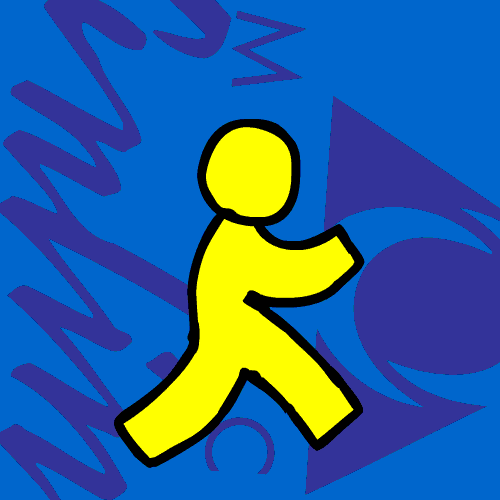I didn’t talk to boys. I didn’t talk to other people, either—teachers, most adults, the girls in my ice skating lessons, strangers of any kind. But it was the boys that bothered me most because I liked boys. I thought about them all the time and formed deep, lasting crushes and by the time I got to Junior High I wanted a boyfriend so badly, it was the wish I made every single time the clock struck 11:11. It didn’t help that my friends were starting to get boyfriends—they’d be standing at their lockers and a boy would approach and say, “Will you go out with me?” and even though that didn’t mean they’d actually take them anywhere, they were a couple now. Boom, just like that.
But the thing about having a boyfriend is that you were typically required to talk to him, so that left me out of luck because I didn’t talk to boys.
I was always super shy. Always voted “Quietist in Class” (seriously why do they offer that superlative, it’s just rude). I never spoke in class except when called upon, even though I often knew the answer, even though I often had something to say. One day my favorite English teacher, Mr. Mayer, who never knew he was my favorite English teacher because I never actually talked to him, came up to me after class and said, “Molly, you write such interesting ideas in your essays. Why don’t you speak up more in class?” I looked at him silently and started to cry. He slowly backed away.
I’ve thought a lot about why I was so shy. Insecurity, of course, looms large. Not wanting to come off stupid or silly, never wanting to say the wrong thing. Especially when it came to boys, I had no faith that my looks alone could charm anyone—my oversized ears, my flat chest, my eyelids that didn’t have the right kind of crease for the sparkly blue eye shadow that everyone was supposed to wear. I knew I was relying on my words alone. So I built up a wall, put on a muzzle, protected those words like precious jewels. If you don’t have anything absolutely brilliant to say, I thought, don’t say anything at all.
Typing, on the other hand, was a different story. When AOL Instant Messenger was introduced in 1997, I was 11 years old. There was one computer in my house, and you could only go online when somebody wasn’t on the phone. “Going online” meant waiting the ten minutes while the modem dialed and groaned, searching for that ever precarious connection. But once you were on, it was magical.
By the time I was in 7th grade, AIM was my main form of communication. This was before my friends and I had cell phones, before cell phones could do things like text, and well before social media as we know it—no newsfeeds, no tweets, no instas, no snaps. The # key didn’t mean hashtag, it just meant pound.

I used AIM to talk to my friends when we were supposed to be doing our homework. We talked about what we were doing, what shows we were watching, what snacks we were eating—basically Twitter, just one-on-one. We talked about real things, too—fights we were having with our parents, unrequited crushes that were eating us up inside, insecurities, secrets, dreams. Particularly good conversations would be printed out and stashed in our rooms to later relive when we were feeling low.
Eventually I got my very own (GIANT) computer that I decorated with puffy stickers and I’d sit in my bedroom late at night, talking to friends on AIM into the wee hours, cracking each other up, making each other smile.
And then, at some point, I started talking to boys. One boy in particular—let’s call him Michael because 85% of the boys in my class were named Michael—who I thought was very cute and very funny and therefore was very terrified of exchanging more than two words with him in school. I don’t remember quite how it happened: I think a friend of mine was chatting with him on AIM one day when I was over at her house (because that was a thing we did, too… went over to our friends’ houses to watch them chat online with other people), and she gave him my screenname (msmolly718, for those curious) and before I knew it, Michael and I were chatting all the time.
I talked to him just like I talked to my other friends: about stupid stuff, which episode of “Family Guy” was our favorite, how much geometry homework we had, how goddamn boring the suburbs were, and about real stuff, too. Our conversations flowed quickly and naturally. I didn’t have to pause and think about what I wanted to say to him, I just typed it. Without needing to face him in person, I felt braver, more open, my fingers unafraid to hit “send.” I discovered I could be quick-witted, funny even. I could make him lol. AIM offered a feature perfect for stalkers and overly anxious teens (it knew its audience well) in which you could set an alarm to go off every time a specific person signed online. And so I set one for him, and there I’d be, lying on my bed, when I’d hear the alarm go off, and before I could shoot upright and make it to my computer, I’d hear the next sound—that wonderful, heavenly bing—and I’d know it was him with some silly message crafted just for me.
During the day, I’d see him in school, and we’d smile and talk a little bit, but nothing ever like our conversations that were saved for those little white chat boxes each night.
This story doesn’t have a happy ending. We never became boyfriend and girlfriend. I never told him how I felt, and I never knew if he felt the same way. I was hoping he’d ask me to senior prom, but he didn’t. Nobody did, so I didn’t go (it’s fine, I’m over it, really). And I wouldn’t really start dating until half-way through college, when I started to gain a modicum of confidence and feel like maybe I was someone worth spending time with after all.
But AIM sparked something in me. For the first time, I felt like I could use my voice—that I had a voice—to connect with other people in the way I had been craving to for so long. It’s where I found out that my ability to be funny and honest and even a little emotional (like, say, in Away Messages quoting Dashboard Confessional lyrics) could carry me through moments of feeling like I was completely alone. At times I wonder if it’s what set me off on this path to become a writer in the first place, seeing how much easier it was for me to write my feelings rather than say them, how much more myself I felt in the confines of the written word.
Twenty years after its launch, AOL has just announced it’s shutting down Instant Messenger, a surprise to no one except those shocked to hear it was still around. We have so many other forms of communication now, most of which we carry around with us at all times in our smart phones. Kids these days (why yes, I feel super old saying that) grow up with the ability to talk to their friends—or strangers across the world—anywhere, at any time, and quaint little AIM is no longer necessary.
But at one time it was, and I’m so grateful for it. It’s how I wound up here, typing out my thoughts and sending them into the magical internet to be read by friends and strangers, maybe even boys.



